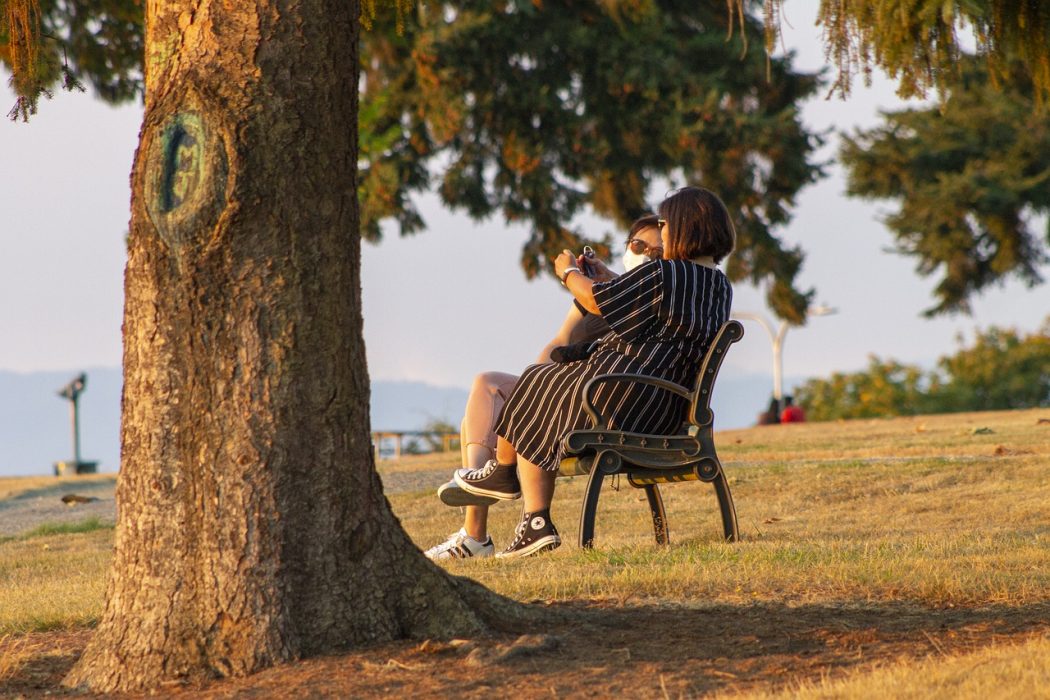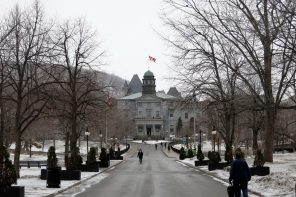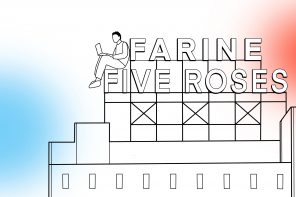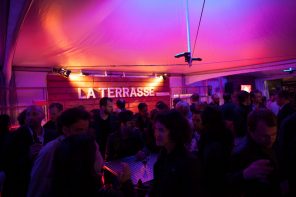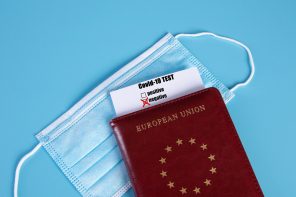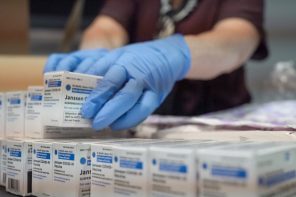*Names changed to protect anonymity.
“These are unprecedented times,” “this is going to be a fall semester unlike any other in McGill history,” “we are unsure about what the future will hold but we remain optimistic.” We have all heard and by now grown tired of these cliched lines that have narrated the past seven months. The uncertainty of our futures in a COVID-19 world is certainly a sobering thought that many of us like to avoid and the start of school has provided the perfect distraction, especially as much of McGill’s student body returns to Montreal.
As people return to Montreal and resume the lives that came to an abrupt halt this past March, the risk of a community-wide decreased vigilance toward COVID-19 is a growing concern.
The pandemic as a threat to public safety is still as prevalent today as it was in March. Now, however, there is an added threat—a desensitized community. The air of excitement that surrounds the McGill community every September has persisted despite these precarious circumstances. As people return to Montreal and resume the lives that came to an abrupt halt this past March, the risk of a community-wide decreased vigilance toward COVID-19 is a growing concern.
Less than a month into the semester, it was officially declared that Montreal was entering the second wave of COVID-19. As of October 5, there were 1,191 confirmed cases in Montreal along with Quebec City and Chaudière-Appalaches, all of which are officially in “red-zone”, the highest level of alert for COVID-19. In response to this sudden increase in cases, the province has announced new restrictions to be in effect as of October 8, such as bans on all in-home gatherings (for houses of more than one resident), as well as the closure of bars and in-house dining in restaurants.
While the return to Montreal has been long-anticipated for many students who have spent the last six months in isolation, it is important that we take these restrictions seriously and prioritize COVID-19 safety measures—even if it comes at the cost of our social lives. Taking a proactive stance to combat COVID-19 through measures such as limiting your social bubble and increased social distancing habits will help prevent further outbreaks among our student body. Keeping our student community safe means keeping the greater Montreal community safe as well.
“I found out my friend Jason* who I had come into contact with was exposed to someone who tested positive [to Coronavirus], so my roommates and I got tested and isolated until Jason and the rest of us got results back,” said U2 Cultural Studies student and Milton-Parc resident Rachel*.
With every passing day, more people are finding themselves in the same position as Rachel. Not seven months ago, Milton-Parc was a vibrant community, its streets constantly filled with students who could congregate without limitations to enjoy each other’s company and destress from the strenuous academic life many McGill students face. Today, students are seen walking through it alone or in small groups, faces covered with masks. While it is incredibly important that we, as members of the community, adhere to COVID-19 precautionary guidelines, this does not change the fact that the happening neighbourhood we once knew is now nearly unrecognizable in its desolate state.
While the return to Montreal has been long-anticipated for many students who have spent the last six months in isolation, it is important that we take these restrictions seriously and prioritize COVID-19 safety measures—even if it comes at the cost of our social lives.
According to the Government of Canada, if exposed to someone who has tested positive for COVID-19, you need to self-isolate for 14 days, even if you get tested within this period and the results come back negative. Coronavirus has an incubation period that can last up to 14 days, meaning someone can still have the virus even if they test negative. This leaves a lot of uncertainty for McGill students, who could potentially be infected at any moment (if they do not take the proper social distancing precautions) and who may still be carrying the virus despite testing negative. This further puts their friends and the public at risk.
“I do believe we need to practice Coronavirus safety measures and be as safe as possible. That being said, mental health needs to be taken into account in addition to physical health, and some degree of social interaction is necessary in order to maintain a healthy mental state,” said Sam, a U2 Political Science student.
Social congress is a foundational aspect of the human experience, and we absolutely need to be able to physically interact with people to some degree. The task at hand nowadays is finding ways to practice coronavirus safety and preventative measures as much as possible, while considering this need for social interaction and the mental health implications of complete social isolation.
With the Red Zone announcement came multiple restrictions surrounding in-person socialization in Montreal, most notably the restriction of having guests over, not including people living by themselves. To some degree, these restrictions are not difficult to break without fear of persecution; if you decide to go to a friend’s house, the police will not be waiting for you.
The absence of a realistic fear of persecution leaves a great deal of room for personal judgment within these new social restrictions. Complete isolation is an unrealistic expectation for young people living alone; however, that does not preclude extra consideration being given to how people socialize. This does not need to be an ‘all-or-nothing’ situation, nor should it be perceived as such. You may be seeing people and going to people’s houses, but limitations should be made on the number of houses you are going to and the number of people you are seeing at a given point. Think about it this way–if you test positive for COVID-19 or find out you were exposed, keep the list of people you need to inform as short as possible.
I am not going to close this off with a message of false optimism, because the frank truth is that these are harrowing times and right now, we need our friends around us more than ever. But the fact remains that we have a social responsibility to do our part in keeping the McGill and greater Montreal community as safe and COVID-19 free as possible.

